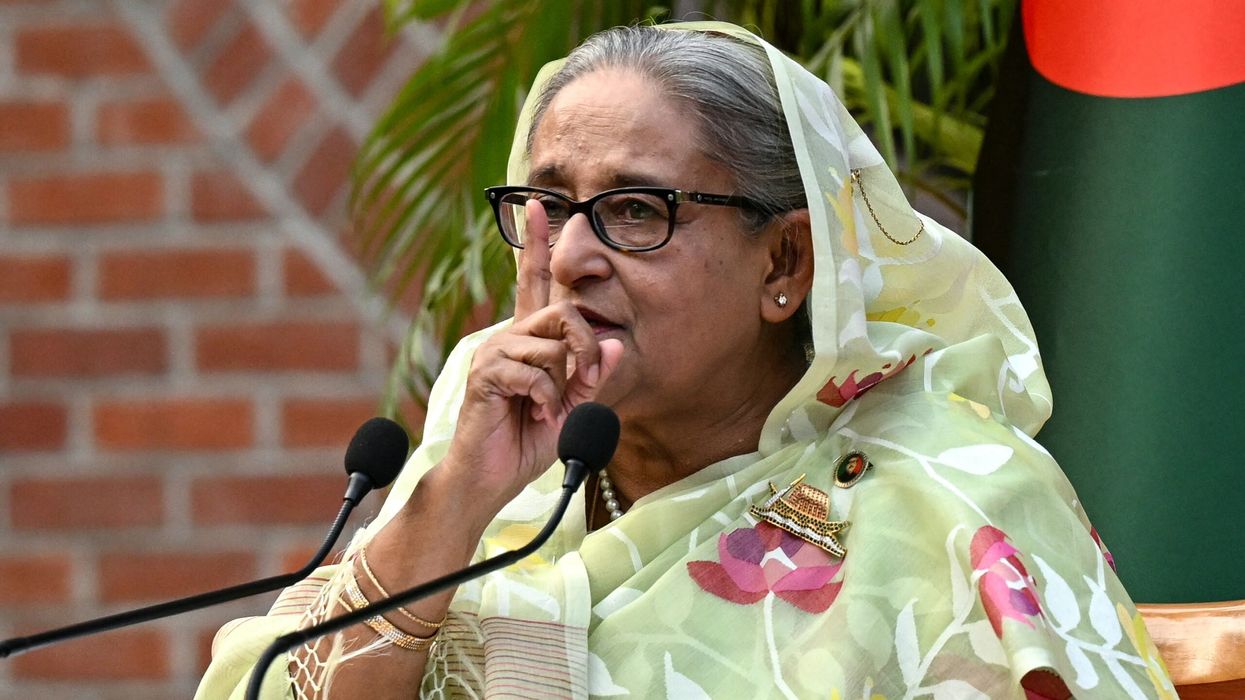THE head of English cricket has admitted to Eastern Eye that the game is in an “appalling position” after a damning report found the sport was beset with racism and misogyny.
Cricket boards were accused of failing to prevent “structural and institutional racism, sexism and class-based discrimination,” in a report by the Independent Commission for Equity in Cricket (ICEC) on Tuesday (27).
“This report has been two and-a-half years in the making. You can see in the level of determination, time and money we’re going to spend going forward to try and make sure we can deliver the solutions you want to see,” Richard Gould, the CEO of the England and Wales Cricket Board (ECB), told Eastern Eye.
According to the report, ethnic diversity diminished in the men’s professional game over the past 30 years and has never been high in the women’s game.
In the UK, only four per cent of professional cricketers are from a south Asian background, though they make up more than 30 per cent of grassroots players.
Asked by Eastern Eye if the ECB was guilty of burying its head in the sand and ignoring these figures – which indicated deep-rooted issues within the game – Gould said: “We fully agree with what you are saying, and we apologise. On behalf of the ECB, once again, we apologise.
“We will now work hard to ensure we can recover from this appalling position. We will make sure that through every pathway, in every county, in every club that we’ve got, our teams reflect the gender and ethnicity of their regions.”
The ECB set up the ICEC in 2021 to look at issues of diversity, inclusion and equality following the racism scandal involving former Yorkshire cricketer Azeem Rafiq.
Pakistan-born bowler Rafiq in September 2020 went public with allegations of racism and bullying relating to his two spells at Yorkshire. He subsequently gave evidence to a digital, culture, media and sport (DCMS) investigation.
Six ex-Yorkshire players were found guilty of using racist language in the Rafiq case, and were last month fined by the Cricket Discipline Commission (CDC).
Former England captain Michael Vaughan was cleared of using racist language “on the balance of probabilities” after opting to defend himself at a hearing in March.
The ICEC’s report came after Rafiq’s testimony to the DCMS and the tidal wave of racism cases that followed.
Of the more than 4,000 individuals interviewed for the report, 50 per cent described experiencing discrimination in the previous five years, with the figures higher for people from ethnic groups.
The report found that 87 per cent of people from Pakistani and Bangladeshi heritage, 82 per cent of people with Indian heritage and 75 per cent of all black respondents had experienced discrimination in the past five years.
Cindy Butts, the ICEC chair, revealed a that a Muslim former player had to endure the indignity of his teammates laughing and joking about one of the players using his prayer mat to clean up after sex.
She described the “routine” use of racial slurs, including one 13-year-old on a talent pathway being racially abused and told to “go back home”.
An Asian player told how he and a teammate had been “called terrorists”, and after complaining, was accused of “attempting to defame” the club in question.
Butts described the stories as “horrific” and said they showed that the culture in cricket was “rotten”.
Women were often treated as “second-class citizens”, the report found. It added that not enough had been done to address class barriers, with private schools dominating the pathway into cricket.
“Our findings are unequivocal,” said Butts. “Racism, class-based discrimination, elitism and sexism are widespread and deep-rooted. The game must face up to the fact that it’s not banter or just a few bad apples. Discrimination is both overt and baked into the structures and processes within cricket.”
A total of 44 recommendations have been made, including that the ECB should commit to be an anti-racist, antisexist and anti-classist organisation and publish a state of equity in cricket report every three years.
“The persistence of interpersonal and structural racism in cricket is due, we believe, in part to a failure by the ECB to specifically and unambiguously name racism as a concern, at least until the recent crisis,” said the report. “Racism remains a widespread and serious problem in cricket across England and Wales, and something the ECB and the wider game should address with urgency.”
Gould said the ECB will use this moment to “reset cricket”.
The ICEC report also found the game to have “elitism and class-based discrimination” which it blamed partly on a lack of cricket in state schools and a talent pathway aligned to private schools.
Some 58 per cent of men who played for England in 2021 were privately educated, significantly higher than the seven per cent of the general population who went to private school.
The report recommended the entire talent pathway structure be “overhauled” to make it more inclusive.
On the lack of funding and talent pathways for state schools, Gould said: “This is one of the recommendations in the report. We’ve got to spend the next three months understanding those recommendations and what’s within our resources. And if it’s not within our resources, how can we lobby for it and deliver for it?”






 John Dramani Mahama welcomes Modi on his arrival in Accra last Wednesday (2)
John Dramani Mahama welcomes Modi on his arrival in Accra last Wednesday (2) South Africa’s president Cyril Ramaphosa, Brazil’s president Luiz Inacio Lula da Silva, Modi and China’s premier Li Qiang at the Brics summit last Sunday (6)
South Africa’s president Cyril Ramaphosa, Brazil’s president Luiz Inacio Lula da Silva, Modi and China’s premier Li Qiang at the Brics summit last Sunday (6)












